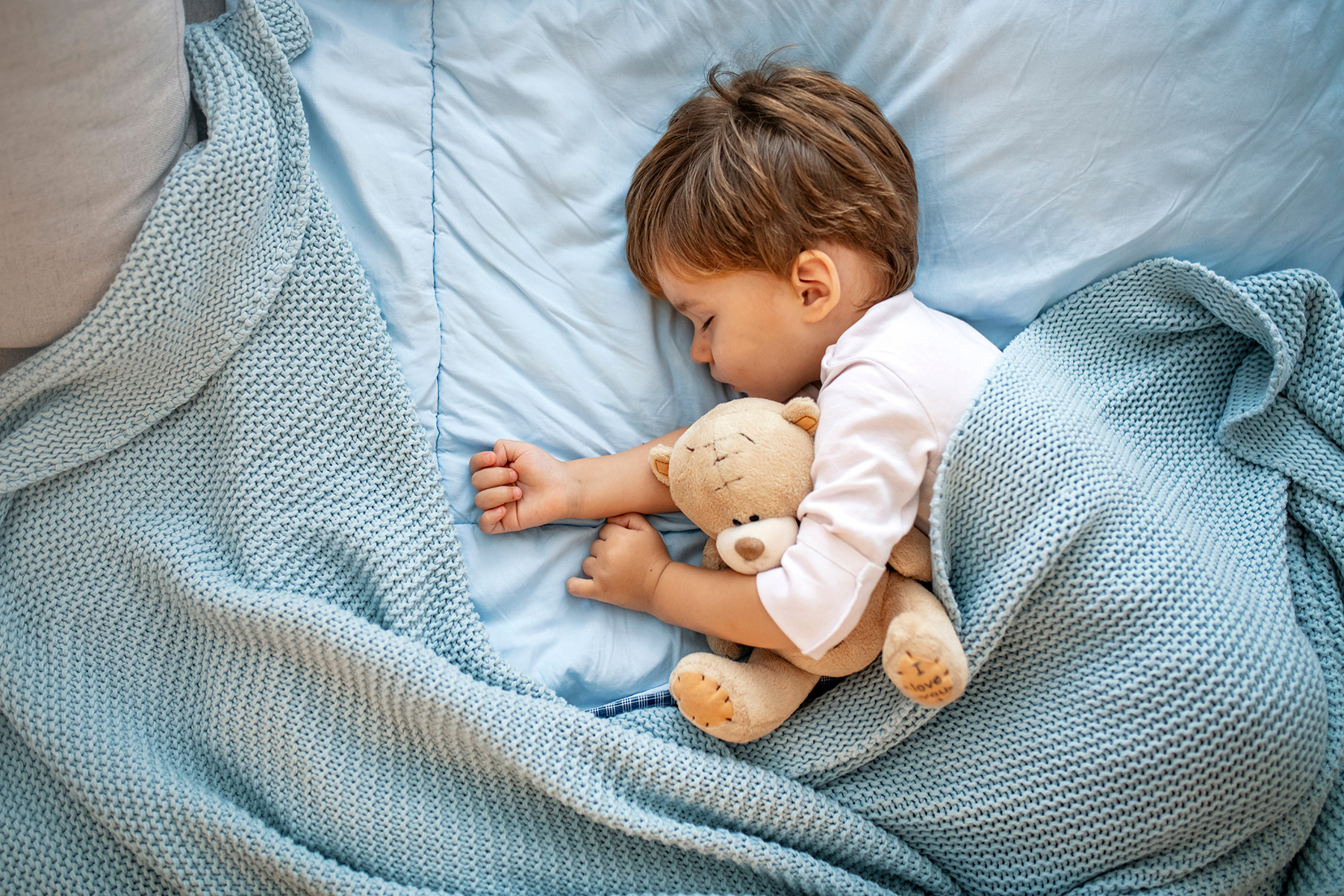Baffled By Bedwetting?
Don't Lose Sleep Over Wet Sheets

If your family is losing sleep over wet sheets, you’re not alone. Millions of children wet the bed, and there’s no one-size-fits-all answer, because bedwetting can happen for a variety of reasons. But you don’t need to figure it all out by yourself. We spoke with Timothy Bukowski, MD, a pediatric urologist with WakeMed Children’s, about bedwetting, when to be concerned, and the best solutions for your family.
It’s Not Their Fault
Dr. Bukowski says the most important thing to remember is that it’s not your child’s fault. Children vary so much in how they grow and develop, and some simply don’t mature as fast as others when it comes to bladder control. Parents should never make their child feel bad about wetting accidents, and it is important not to compare one child to another when it comes to daytime or nighttime accidents.
Cause for Concern?
Any type of wetting disorder can be a source of distress. The key to figuring out when to be concerned is to pay attention to when it is happening – and communicate with your child’s pediatrician. They can help you understand what’s normal versus a cause for concern.
Wetting accidents for kids under the age of five are fairly common. If a child is having daily struggles or continues to have accidents after age five, especially with UTIs, don’t delay in seeking medical advice. “Children with daytime and nighttime wetting accidents along with constipation should get checked as soon as possible,” says Dr. Bukowski. Wetting can definitely be the symptom of seemingly unrelated health issues, and left unaddressed for too long can develop into serious illness.
“Approximately 10 percent of kids have some type of wetting issue, and 15 percent of seven-year-olds have nighttime wetting issues,” he adds. “That number decreases by about 15 percent a year until age 15, so it is not believed to have anything to do with puberty.” Bed-
wetting is not typically treated until age seven, but that doesn’t mean it shouldn’t be looked into to rule out related health conditions. Many times, young children aren’t concerned with their wetting is-sues, but it often becomes more of a concern as they get old enough for overnight stays at camps or the homes of friends and family.
Deep Sleepers
Many bedwetting issues are considered to be associated with a sleep issue. A child might have a bladder capacity issue or wet the bed due to stress or a traumatic event, but Dr. Bukowski says those cases are not as common. “More than likely children with nighttime wetting issues are also sound sleepers,” he explains. “Until they start waking up when their body signals it’s time to go, the accidents continue.”
How Often Should Children Go?
Parents often wonder what’s a normal frequency of urination for kids. Dr. Bukowski provided these basic guidelines to help families notice when something might be wrong: newborns, every hour; at six months, every three hours; and when potty trained, five times a day.
To help keep young children on track, Dr. Bukowski also recommends parents en-courage the following schedule for going to the bathroom: when they wake up, mid-morning, lunchtime, afternoon/afterschool, and before bed.
Seeking Solutions
Most families try a number of things with sleep routines to troubleshoot, but many times they aren’t able to find a rhyme or reason on their own. A referral to a pediatric urologist can be helpful in ruling out causes, alleviating concerns, and navigating next steps for possible bedwetting solutions. “The first thing we do is make sure the child doesn’t have a physical problem that would lead to bedwetting,” says Dr. Bukowski. “Concerns would include anything anatomical or spinal that could require surgery.” Urinary tract infections (UTIs) are also a concern that parents should be aware of and watch for any signs or symptoms. If a child’s bedwetting is due to an overactive bladder, they might respond well to medication. A pediatric urologist will likely prescribe something to try for a short period of time and assess if it is helping to reduce or stop the nighttime accidents.
Bedwetting alarms are another option that helps some kids wake up when they start to go so their brains begin to recognize the sensation, but Dr. Bukowski explains they won’t do much good if the child sleeps through the alarm sound. “However, there have been some recent advances in technology for wearable device options that help track and predict nighttime bedwetting.”
WakeMed Children’s – Pediatric Urology provides comprehensive care and services – from diagnoses to treatment and management – for pediatric patients with common or complex urological issues. For more information about pediatric urology services, or to make an appointment, call 919-235-1940.

